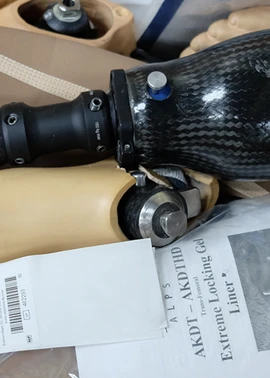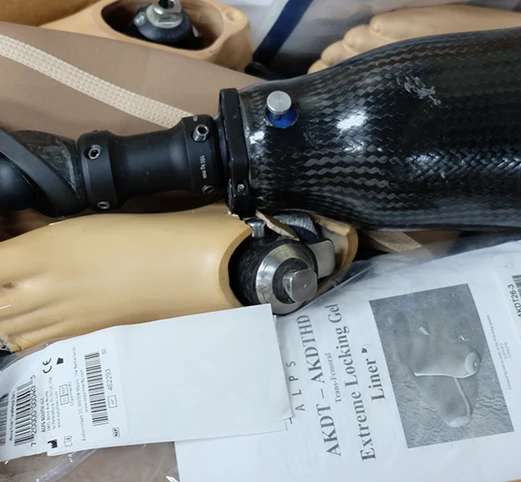"In the US it is estimated that 300,000 prosthetic limbs are discarded every year with no secondary market due to regulation. This high-value waste could be used to satisfy demand in the developing world where around 38 million amputees do not have access to prosthetic care (2). A team of Yale students founded Penta Prosthetics to bring high-quality, low-cost prosthetic care to developing countries while repurposing medical waste in the US. Penta was founded in 2016, and Kacha joined a year later as COO. He ran a volunteering programme to connect students with hospitals in Thailand to learn about healthcare and entrepreneurship. He manages partnerships with health clinics, hospitals, and universities in developing countries to connect them with demand, and with 100 US-based suppliers such as Hanger Clinic.
Through these partnerships, the team has managed to support amputees in 10 different countries across Asia, Africa, and Latin America. Penta has rescued 4,000 prosthetics from premature disposal and fit 1,200 amputees who otherwise would not be able to afford high-quality devices. In Thailand, an imported prosthetic costs approximately 50,000 Baht and for a rural amputee in Thailand, it would take an estimated 6 years with no expenditure to afford this (3). The key environmental benefit to the project is avoiding the improper disposal and unnecessary production of an estimated 2 tonnes worth of devices. Additional support for the organisation has been provided in the form of grants, operational, and marketing support. However, in 2021, the organisation is transitioning to a more sustainable model of social entrepreneurship to reduce its financial dependence. Penta also increasingly lobbies to raise awareness and tackle stigmas against disabilities. In 2020, they worked with influencers and organisations in the amputee community to launch the Dance4Mobility challenge on TikTok and ran community events to promote sports like basketball and rock climbing for amputees.
Kacha also secured a fellowship through the Resolution Project at the One Young World Summit to develop a new initiative developing high-quality prosthetic ankle joints which generate power ‘passively’ through spring mechanisms rather than electronics, potentially reducing the cost from $10,000 per mechanism to $50."
Contributor

